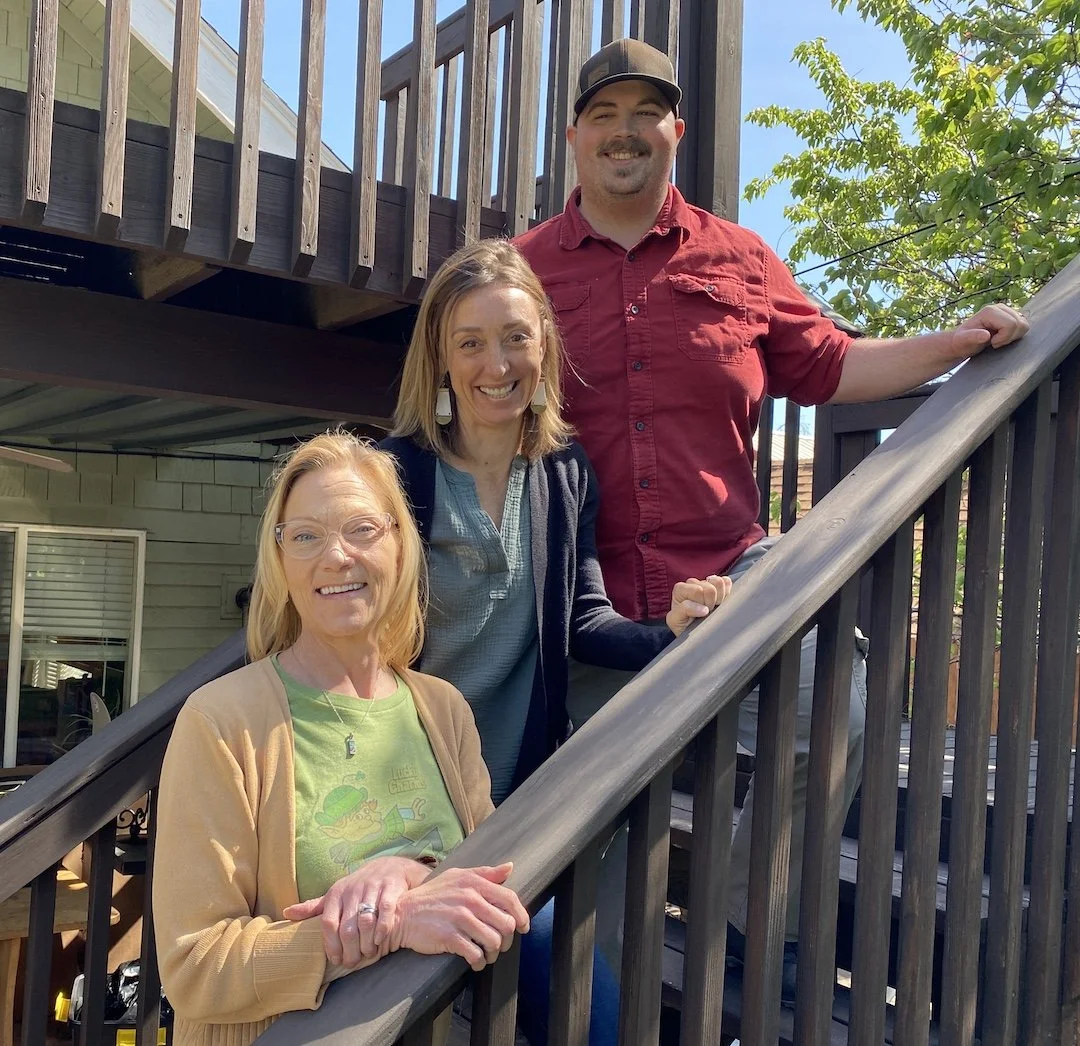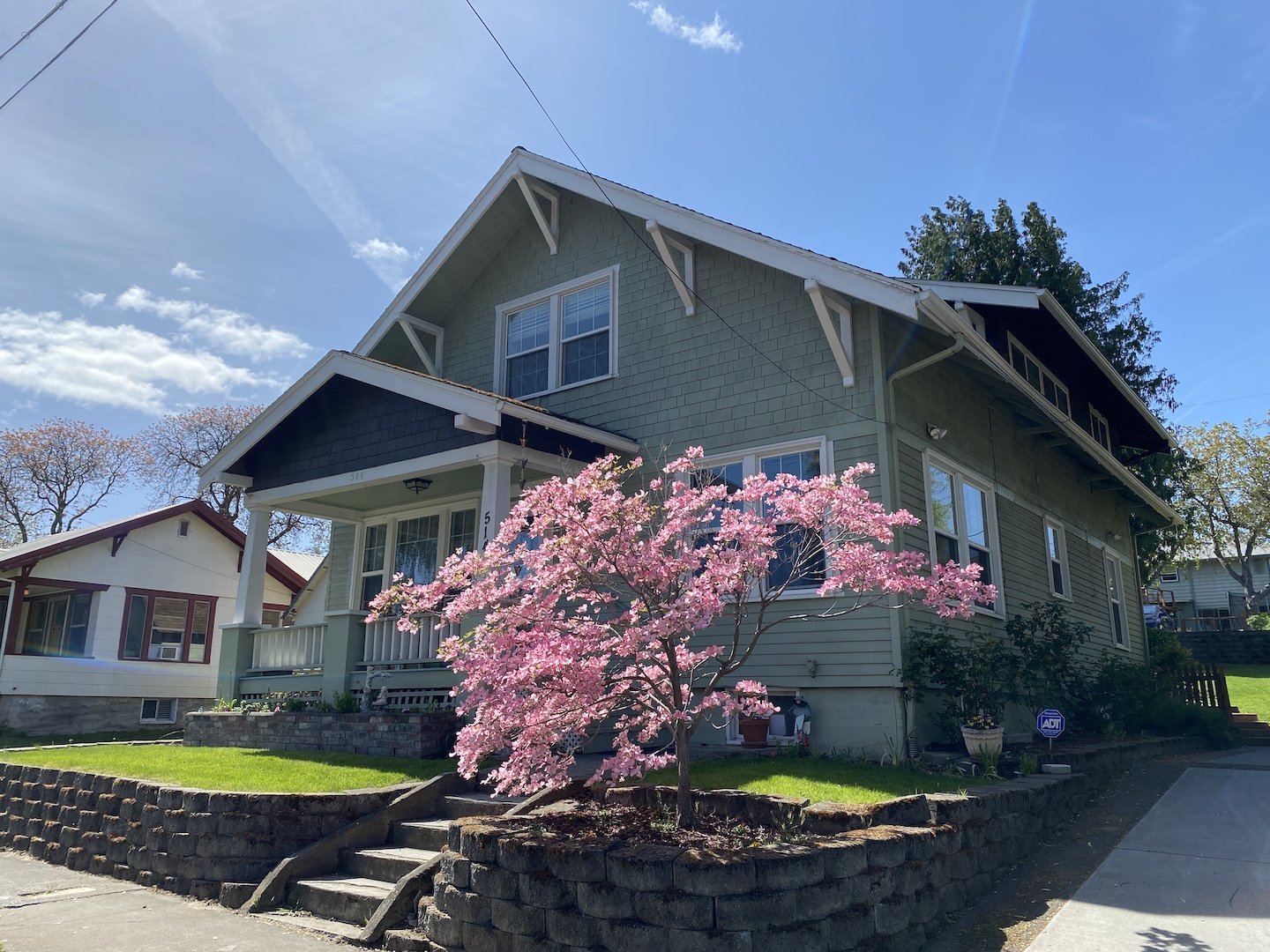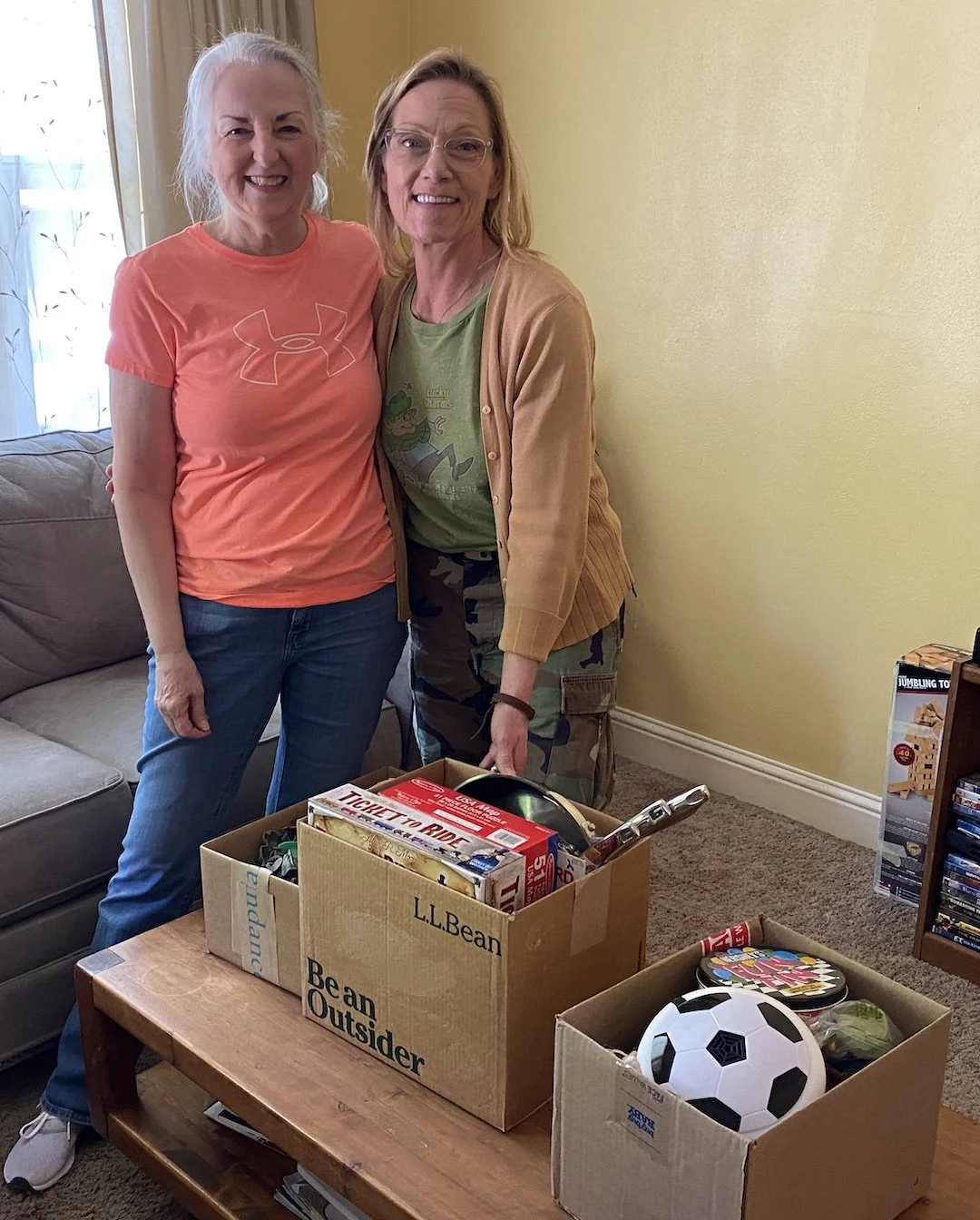YES House giving voice to Youth Health after pandemic’s silence
Youth Empowerment Shelter’s Karrie Vareberg, Livia Christensen and Isaiah Snyder.
YES House at 514 E. 9th St., TD
Sponsored by The Dalles Kiwanis Club:
By Cole Goodwin & Tom Peterson
Climbing the steps past the pink dogwood at 514 E. 9th Street, in The Dalles, you think you are walking into an early 20th-century bungalow.
But that’s really not it.
While the form of the house is quite familiar, the function is quite another thing.
This is the Youth Empowerment Shelter or YES House, and it's making a comeback after the pandemic temporarily closed its doors.
This house is a place of transition, a resting spot for kids who have been houseless, couch surfing, abandoned, or feeling ostracized in one form or another.
It’s a place to get a hot meal and get cleaned up.
Youth who walk these stairs and enter are likely scared, stressed out. They may be seeking a place of acceptance or help with an abusive family situation.
And they are vulnerable and young.
They might not think so, but they are.
Karrie Vareberg accepts a donation for the Youth Empowerment Shelter House Yard Sale scheduled for this weekend, May 13 & 14 from 10 a.m. to 3 p.m. Proceeds from the sale will go toward the nonprofit to assist youths in finding stable shelter. Donations can be dropped off at the House or call 541-705-4777. Or stop by and find some treasure.
Maybe they’re on the fence between good and bad choices. Choices that can set them up for success or choices that can hold them back, or worse, yet, spiral them into a life below the law that they never foresaw and certainly did not want.
The silence in the house was deafening during the pandemic, said YES House mom Karrie Vareberg, as they knew kids were still needing help but access was limited.
“It was quieter,” she said. “But it’s going to break open now as our society processes what we’ve been through.”
“We try to provide support in a small way,” said Livia Christensen, who is a founding board member of YES House and now the new Executive Director. “We don’t just provide shelter. We take a lot of phone calls from kids and parents who need extra support and don’t know what to do.”
Much of the time, YES House is helping hold families together by keeping youths in their homes when possible. Staff provides information and contacts to services that can help.
“I had a kid come in yesterday trying to figure out how he would be able to stay where he is living,” Program Director Isaiah Snyder said. “I said, let’s get you connected to someone who can get you a rental voucher. Let’s look at jobs. Did you apply here? How about car insurance? The whole goal is to keep them in a long-term stable home.”
Problems can also deal with abuse, addiction, and barriers to employment.
But once a kid is houseless, basic needs of food, shelter, clean clothes and bathing are needed. And YES House can handle up to 10 youths.
Vareberg and Snyder both gave examples of kids who came through YES House, noting the challenge was to get them to take ownership of their future and not let past trauma own them.
There is, no doubt, kids coming through the doors that have feelings of inadequacy or a lack of confidence, often espoused in the phrase, “I can’t ever do that.”
“I had a kid who liked to play cards and games,” Isaiah said. “He came to us homeless. He was living on the street and struggling with school. He had learning challenges.”
They helped him get an Oregon Identification and his Social Security number.
And they made sure he graduated high school.
“He has his own job now. He’s pretty independent, self sufficient,” Snyder said.
Vareberg said she had a girl with the “worst attitude of anybody she’d ever had.”
“I took her to her GED class every day. She would not say a word. She would not even look at me. I was talking to the air.”
But Vareberg said she persisted, and the girl eventually earned her General Education Degree. During the past year, she returned to the YES House for a get-together with past residents.
Caleb McLean recently donated his crews time mowing the yard and trimming at YES House on East 9th Street. The All-Electric Lawn service is, like many businesses and residents in The Dalles, willing to donate to give houseless youths a second chance.
“She came with her baby and gave me a big hug,” Vareberg said. “She was the last one to leave and was hugging me.”
Christensen said that was part of the vibe at the house, that it is a safe nurturing place, and kids return to it with a sense of nostalgia and ownership.
And since the YES's inception in 2016, the house has had 125 youths cross the threshold.
“It’s a testament to this community to have a place like this,” Christensen said. “We have a community that is willing to support it.”
For more information about the YES program, volunteering, employment opportunities or donations, click here.
“We’re really lucky to have a 24-hour staffed shelter for homeless adolescents. We are the only ones to have a shelter like that east of Multnomah County and East of Deschutes County all the way to the Idaho border. The YES House is our number one diversion from the juvenile justice system.” said Molly Rogers, Northern Oregon Regional Correctional Facilities Director. “Having this shelter keeps kids out of the NORCOR juvenile system.”
“We see a lot of houseless youth at NORCOR, and more often than not those youth tend to have a history with trauma or child welfare, and they tend to show up in our system as runaways,” said Rogers.
Rogers said that houseless youth in Wasco County tend to be less visible than houseless adults because a greater number of them are couch surfing.
“We see a lot more couch surfing homeless youth in our communities,” said Rogers. “And other community members tend to feed or take care of them so they don’t tend to get criminalized the way adults do. If you’re a parent you’re more likely to let your 16-year-old bring home a friend for a few days than your 25-year-old. So, houseless adults tend to be the ones that get trespassed, and they get caught stealing food more than the youth, just because most of our houseless youth are couch surfing. But that does not mean that there are not bad outcomes for couch-surfing youth though, as they tend to fall behind in school for example.”
Josh Al-Jaouni, age 33, who will soon begin leading a crossfit program for at-risk youth in Oregon, said he wished the YES House had been operating when he first began experiencing houselessness at age 17 in The Dalles.
“The reason I was homeless was because of drugs,” said Al-Jaouni. “I was born with a birth defect, and I didn’t feel accepted by the people around me. But when I was doing drugs, all the other people who did drugs accepted me. They didn’t care about anything else. They’d just be like, hey, you do drugs? Come hang out.”
“When I was homeless I was scared, I didn’t know where I was going to eat or sleep. And sleeping on somebody's couch was rare because I’d burned a lot of bridges.”
“There are a lot more resources available now than when I was a kid,” said Al-Jaouni. “The YES House didn’t exist when I was a youth. If it had, I definitely would have preferred to go there and maybe things would have been different for me.”
Since there were no local youth shelters, Al-Jaouni was put into a transitional housing program in Bend called LOFT. LOFT helped Al-Jaouni get his first job, but it also took him away from the town and community he knew.
Al-Jaouni said that he hoped his story could be a message of hope to others who have had addiction or houselessness impact their life as a young person.
“My life then and my life today are like night and day,” said Al-Jaouni.
“I just celebrated 4 years of sobriety. I’m enrolled at Multnomah University in Portland. I’m studying pastoral leadership. I have a house that I rent. There’s a lot of stability in my life today. And I’m improving myself by asking: Am I being the best dad I can be? Am I being the best husband I can be? I’m excited to be here now and to start helping kids that were in my same position I was in 20 years ago. And I want to say to those kids who are homeless: be bold, be brave, and stand up for yourself and for what you believe in.”
Thankfully, unlike when Al-Jaouni was a youth, the Gorge now has at least two resources for youth experiencing houselessness: the YES House and the Next Door’s Drop-In Center.
In March, The Next Door, opened up a Drop-In Center for young people ages 14-23 who are at risk of experiencing houselessness.
Everyone who comes to the Drop-In Center is greeted by caring and knowledgeable staff who provide hygiene kits, clothing, emotional support, and so much more. The warm and inviting space offers a library, computer, TV, games, and art supplies. Staff and volunteers also lead talk circles, breath-work, meditation, and craft projects.
The Next Door’s Youth Drop-In Center. Photo Credit: The Next Door
Young people can drop in to get connected to services and request supplies such as clothes, blankets, personal hygiene products, food, and even infant care supplies like diapers and formula.
“We celebrate each young person for their uniqueness and provide them with tools to help them thrive,” said Micah Grey, who works in the Drop-In Center.
Are you a houseless youth in need of assistance? Call the YES House at 541-705-4777.Or Call the Next Door’s Youth Drop-In Center at 541-645-3023.
—-
Story Sponsor:
Kiwanis is a global organization of volunteers dedicated to changing the world one child and one community at a time. To learn more, click here.





